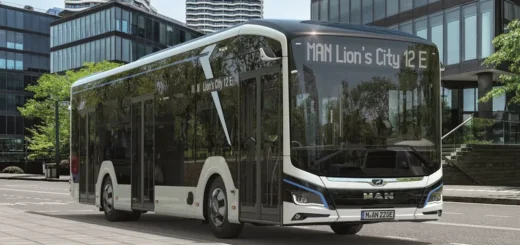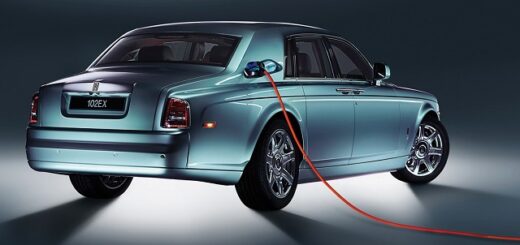Tata Starbus Fuel Cell (Next-Gen): India’s First Hydrogen Bus
The 12-metre ‘zero-emission’ city bus has been developed in partnership with ISRO.
Tata Motors has unveiled the next-generation Starbus Fuel Cell hydrogen-powered urban bus at its Pune facility. Acclaimed as country’s first ‘zero-emission’ bus using compressed hydrogen gas as fuel, the Starbus Fuel Cell is a product of technical collaboration with the ISRO (Indian Space Research Organisation) since 2006. The use of fuel cell technology results in 40-60 percent efficiency in energy conversion than conventional diesel buses, also curbing vehicular pollution and noise out of conventional engines.
Also Read: Toyota’s Hydrogen-Powered Bus To Go On Sale This Year
Based on the previous-generation LPO 1625 Starbus Fuel Cell unveiled in 2013, the new bus is using an improved version of the platform that also underpins the new Starbus Hybrid and Starbus Electric buses. Visually similar to the hybrid variant, the fuel cell bus features heavy roof casing that houses four hydrogen cylinders with 205 litres capacity each. The longitudinally-placed hydrogen fuel cell power system at the rear produces electric energy (equivalent to 114 hp) using the stored hydrogen and oxygen from the air to power the Lithium-ion battery pack. The battery delivers power to the two rear-axle mounted propulsion motors with summation gearbox, resulting in a combined output of 250 hp and 1,050 Nm of torque at 800 rpm. The only by-product of the hydrogen to electric energy conversion is water and heat, therefore zero-emission and silent operation. Energy recuperation technologies are also in place.
The Starbus Fuel Cell features independent pneumatic suspension with hydraulic double-acting telescopic shock absorbers, while the braking system involves full-air dual-circuit SCAM system assisted by ABS. Measuring 12 metres and 2.6 metres wide, the bus boasts low-floor with a seating capacity of 30 passengers and fully air-conditioned cabin. The company claims a top speed of 70 kmph, with a maximum gradeability up to 17 percent.

New Tata Starbus Fuel Cell uses an improved LPO platform of the previous-generation prototype unveiled in 2013 (pictured above)
Tata Motors claim that the hydrogen fuel cell technology ensures 40-60 percent efficiency in chemical to electrical energy conversion, thereby reducing fuel consumption to over 50 percent. The system is also reliable and less dependable on fossil fuels, along with fast refuelling time unlike pure-electric buses. Yet, the hydrogen fuel infrastructure in our cities is essential for this technology to catch up.
Also Read: Tata Starbus Hybrid Bus (Next-Generation)
Moreover, production and transportation of hydrogen fuel results in carbon footprint, therefore the fuel cell cannot be claimed as absolutely ‘clean’. Yet, for all practical purposes, the technology is zero-emission and eliminates noise pollution in our urban spaces.
Next, would you like to read more on Hydrogen Fuel cell vehicles, or Tata CV?











